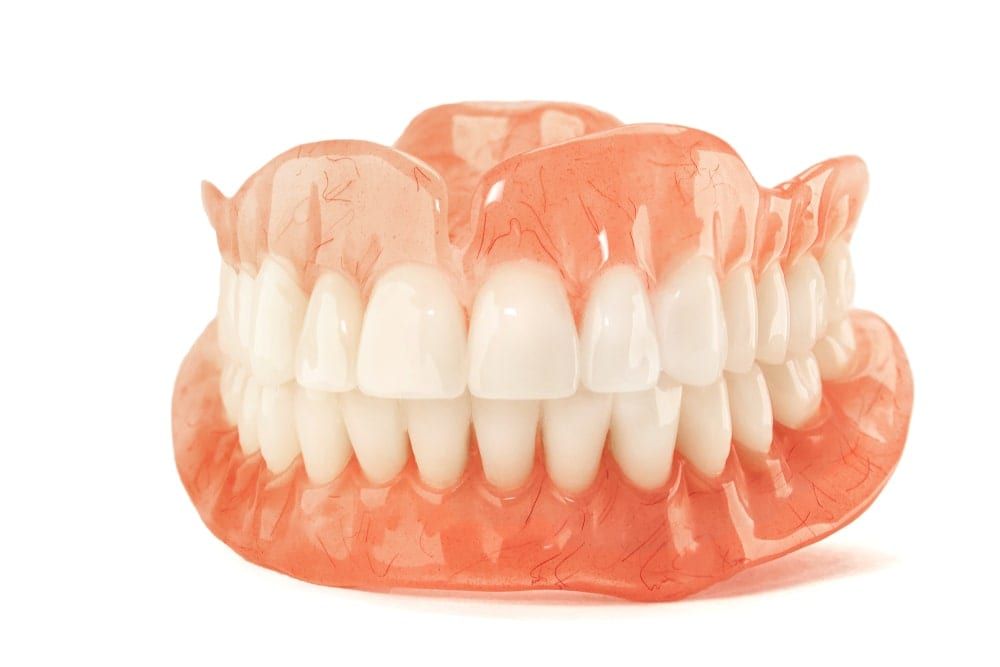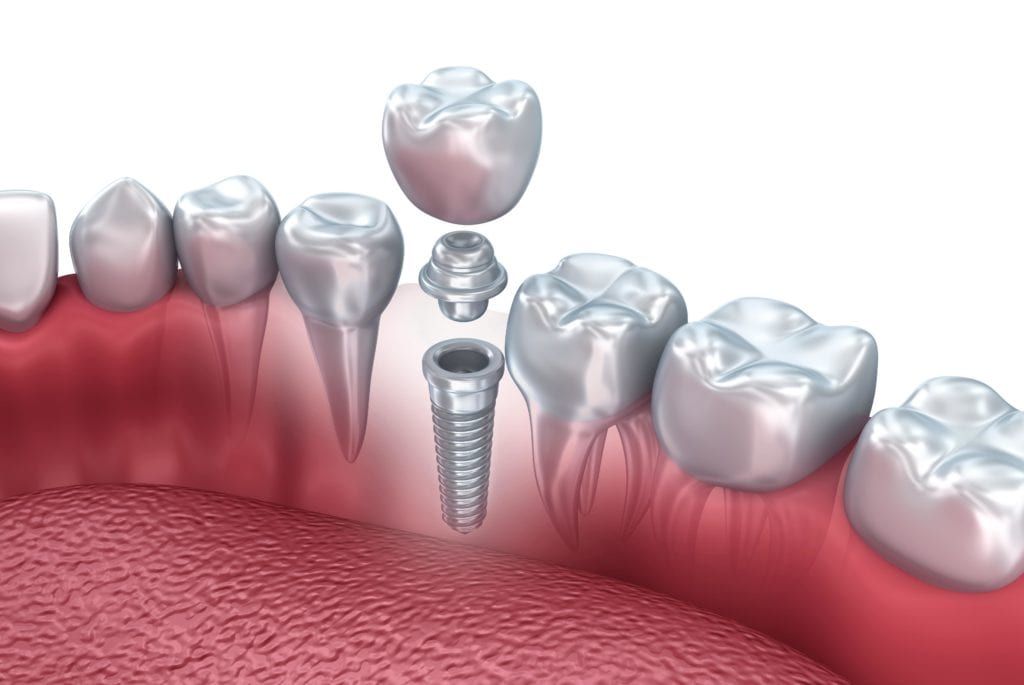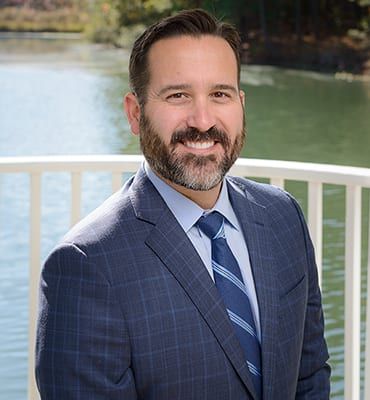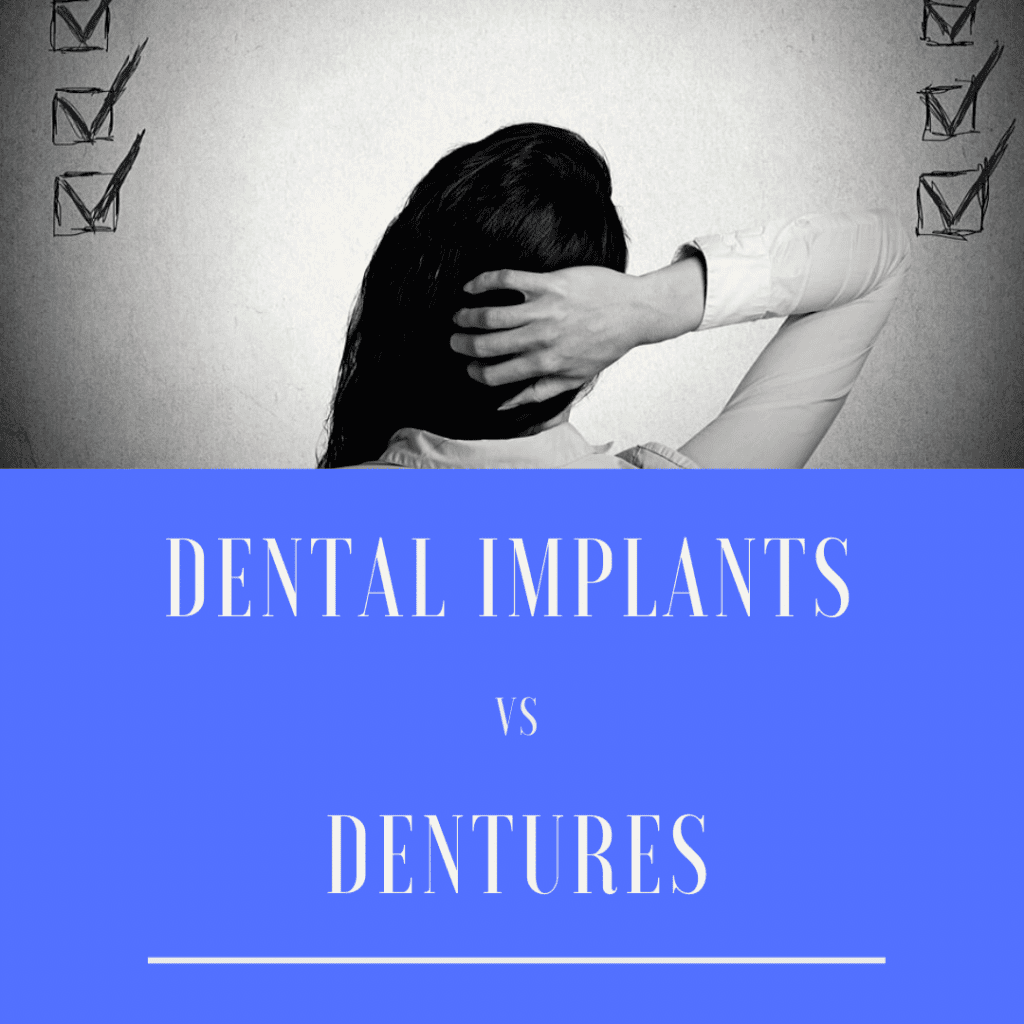Teeth can fall out for a variety of reasons, although the most common reasons are due to tooth decay or gum disease. These common dental issues can be a problem for all age groups, but they can be especially problematic for older adults. In fact, a study cited by the American College of Prosthodontists notes that 30% of people ages 65-74 currently have none of their natural teeth.
Without teeth, eating and speaking are severely impacted. This generally means edentulous (toothless) patients are restricted to a permanent soft foods or liquid diet, and their speech can be tough to understand. To avoid these things, many edentulous individuals choose to undergo a full mouth reconstruction to restore their speaking and eating functions, as well as to improve their visual appearance.
There are types of dental restorations that can be used to accomplish a full mouth reconstruction. Namely, these are dentures and dental implants. Dentures are a traditional tooth restoration method, while dental implants offer patients something slightly different.

Dentures are fake teeth attached to an acrylic base made to replicate the gums. The acrylic base is fabricated so that it can fit over the gums and remain in place. In some cases, denture adhesives may also be required to prevent shifting or sliding. In the case of a full mouth makeover, dentures are placed on both the top and bottom arch. However, they can also be placed only on the top arch or only on the bottom arch.
In cases where some natural teeth remain, a partial denture may be used in place of a full denture. A partial denture only contains enough fake teeth to fill in the spaces left by missing teeth. Although a partial can be supported with an acrylic base, they usually require some kind of metal framework wrapped around the natural teeth for stability.
Both types of dentures are ideal for individuals looking to replace missing teeth in a minimally-invasive way. Most patients are candidates for dentures and the procedure usually only requires dental impressions and dental appointments to check the denture fit. In the beginning, there is also a brief adjustment period where you may opt to follow a temporary soft foods diet. The one main downfall of dentures is that they don’t stimulate the jawbone, so they will eventually need to be replaced as the bone changes shape over time.

Dental implants are artificial tooth roots that are implanted into the jawbone and used to stabilize a dental prosthetic. In the case of a full mouth reconstruction, implant-supported dentures are usually placed. Implant-supported dentures look the same as traditional dentures, however they are attached using implants. This means that they are fixed in the mouth and will not slip or slide.
Unlike dentures, however, dental implants require a more invasive procedure for their initial placement. Patients considering dental implant treatment must have enough bone mass to be a candidate and they must be willing to undergo an oral surgery and recovery period. This is because dental implants must fuse with the surrounding bone and this fusion process takes about 3-6 months on average. This process ensures that the implants stimulate the jawbone in order to prevent the bone from deteriorating over time. During this time, minimal force is applied until after the implant heals. This means that patients recovering from implants will need to maintain a temporary soft foods diet and adhere to the instructions provided by their implant dentist.
As you can see, both methods are able to be used for a full mouth reconstruction to restore missing teeth. However, dentures and dental implants both offer different approaches to creating a new smile. Dentures are considered minimally-invasive, while dental implants require more invasive methods. Therefore to decide which tooth replacement option is best for you, it is encouraged to visit your local dental office for a consultation.

Dr. Michael C. Shuck received his Doctor of Dental Surgery (DDS) degree from the Medical College of Virginia, Cum Laude. He takes part in many volunteer outreach events, including Virginia’s Mission of Mercy project, Virginia Special Olympics, Give Kids a Smile, and the Jamaica Project. Dr. Shuck also is a regular volunteer at Williamsburg’s Olde Towne Medical Center. He actively participates with Virginia’s Donated Dental Service. Dr. Shuck has been a practicing dentist in the Williamsburg, Virginia area since 2007.


